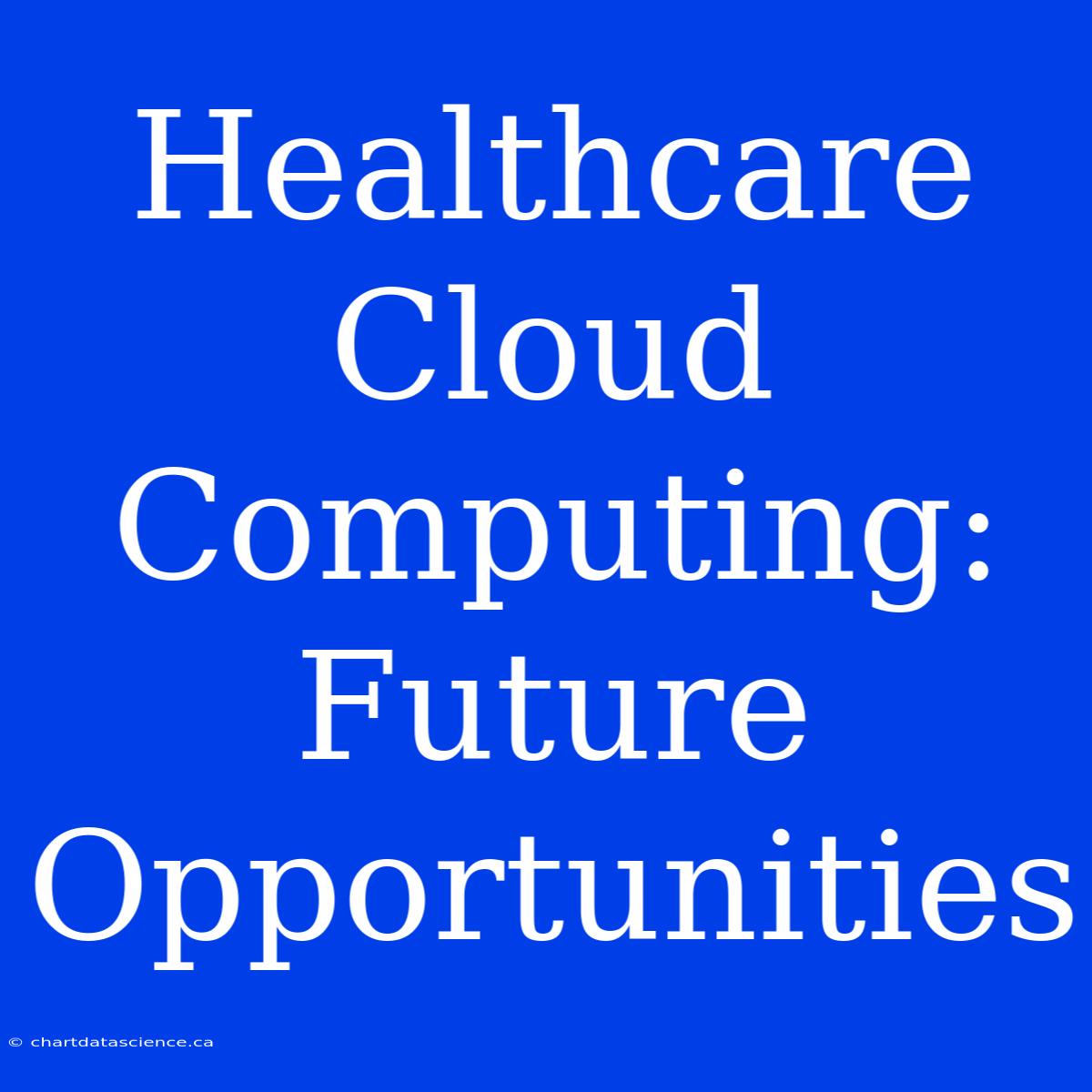Healthcare Cloud Computing: The Future of Patient Care
The healthcare industry is undergoing a digital transformation, and cloud computing is at the heart of it. With the rise of electronic health records (EHRs), patient portals, and telehealth, healthcare providers are increasingly reliant on technology to deliver high-quality care. Cloud computing offers a robust and scalable solution, enabling healthcare organizations to manage and analyze vast amounts of data, streamline workflows, and improve patient outcomes.
What is Healthcare Cloud Computing?
Healthcare cloud computing refers to the delivery of healthcare services, such as data storage, software applications, and infrastructure, through cloud-based platforms. These platforms operate on a pay-as-you-go model, allowing providers to access resources as needed without the need for significant upfront investments.
Opportunities for Healthcare Cloud Computing
The healthcare cloud computing landscape is ripe with exciting opportunities, offering solutions to some of the industry's most pressing challenges:
1. Enhanced Data Security and Privacy
Cloud providers invest heavily in robust security measures, ensuring patient data is protected from breaches and cyberattacks. This is especially crucial in healthcare, where patient privacy is paramount.
2. Improved Interoperability and Data Sharing
Cloud platforms enable seamless integration between different healthcare systems, facilitating data sharing and collaboration between providers, patients, and researchers. This leads to better-informed care decisions and improved patient outcomes.
3. Scalable and Cost-Effective Solutions
Cloud computing offers a flexible and scalable solution, allowing healthcare organizations to adapt their resources as needed, without the need for large upfront investments. This cost-effectiveness is particularly attractive for smaller clinics and hospitals.
4. Advancements in Telehealth and Remote Patient Monitoring
Cloud-based telehealth platforms enable healthcare providers to offer remote consultations, diagnoses, and treatment, expanding access to care for patients in underserved areas.
5. Data Analytics and AI-Driven Insights
Cloud computing enables healthcare organizations to harness the power of big data analytics and artificial intelligence (AI) to identify trends, predict risks, and personalize treatment plans. This empowers providers to make data-driven decisions and improve patient care.
Challenges and Considerations
While the benefits of healthcare cloud computing are undeniable, there are challenges to overcome:
- Data Security and Privacy Concerns: Despite robust security measures, concerns remain regarding data breaches and patient privacy.
- Regulatory Compliance: Adhering to complex healthcare regulations, such as HIPAA, can be challenging for cloud-based platforms.
- Integration Challenges: Integrating cloud solutions with existing healthcare systems can be complex and time-consuming.
- Vendor Lock-In: Dependence on a single cloud provider can lead to vendor lock-in, limiting flexibility and potentially increasing costs.
The Future of Healthcare Cloud Computing
As technology advances, healthcare cloud computing is poised to play an even greater role in transforming patient care. Expect to see the rise of:
- Artificial Intelligence (AI) and Machine Learning (ML): Cloud-based AI and ML algorithms will be used for personalized medicine, disease prediction, and drug discovery.
- Internet of Medical Things (IoMT): Connected medical devices will generate vast amounts of data, which will be analyzed through cloud-based platforms to improve patient monitoring and care.
- Blockchain Technology: Blockchain will be used to enhance data security and privacy, facilitate secure data sharing, and improve transparency in healthcare.
Conclusion
Healthcare cloud computing is a transformative force in the healthcare industry, offering numerous opportunities to improve patient care, enhance efficiency, and drive innovation. While challenges exist, the potential benefits are too significant to ignore. As the adoption of cloud computing continues to grow, we can expect to see even greater advancements in the delivery of healthcare services, leading to a healthier and more empowered future for patients.

